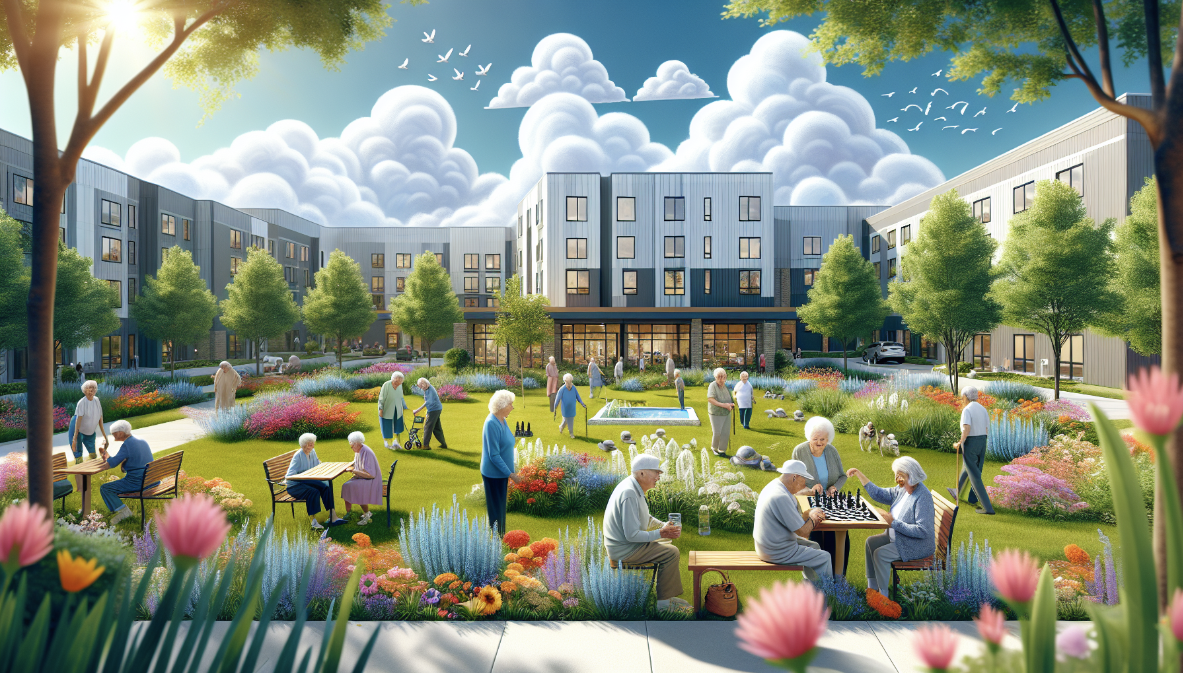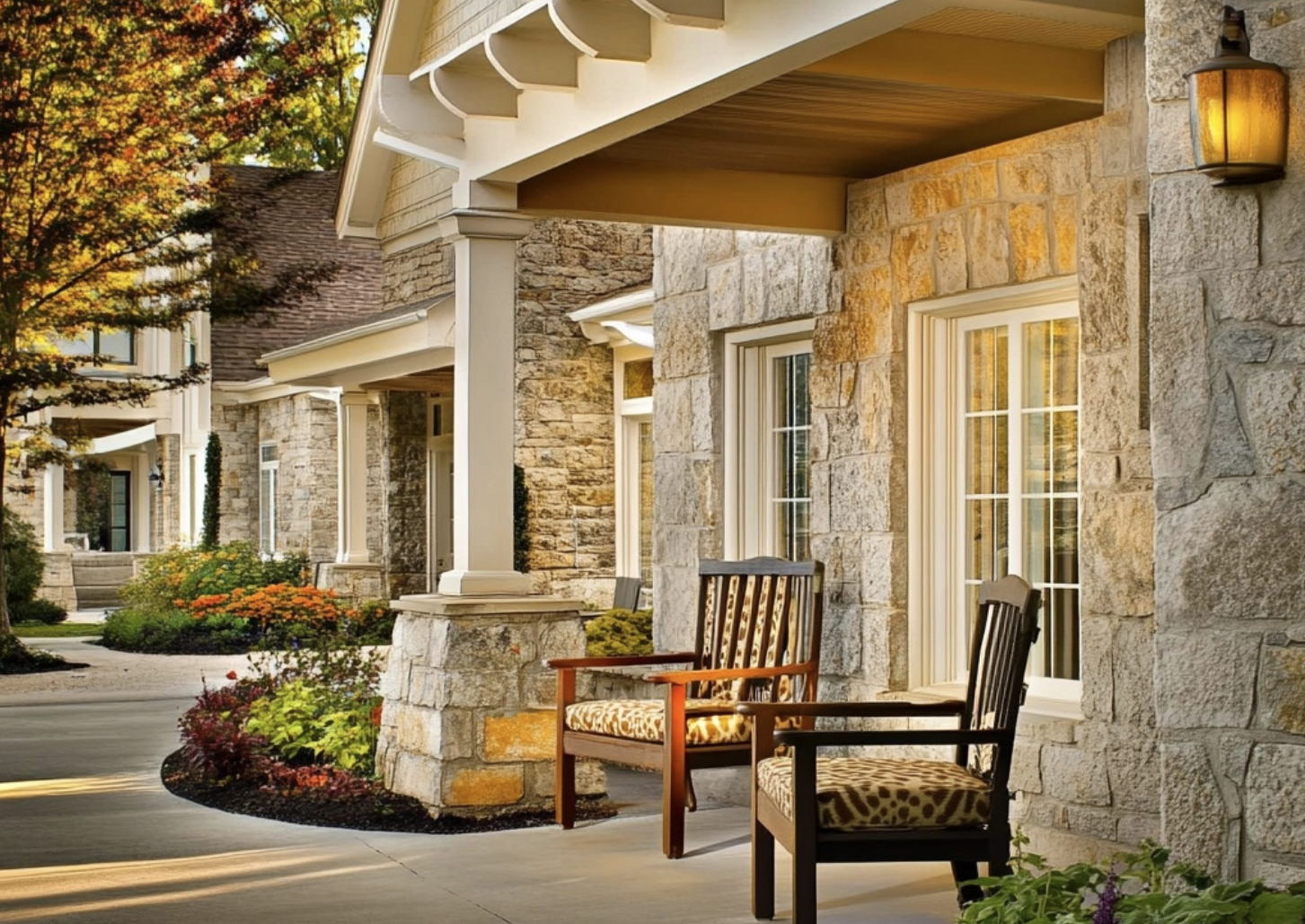Assisted living in Wisconsin represents a burgeoning sector, pivotal for ensuring the well-being, care, and security of its aging population. With an array of communities offering comprehensive services, from housekeeping to personalized care programs, the choice of assisted living facilities within the state is diverse, catering to the varied needs and preferences of its residents. The importance of finding a supportive living environment that not only promises safety and wellness but also enriches the lives of senior citizens through amenities such as fitness classes, rehabilitation services, and social activities, cannot be overstated. As families navigate through the complexities of assisted living costs, staff to resident ratios, and the array of services offered, the decision-making process becomes all the more critical for ensuring that their loved ones receive the quality care they deserve.
This guide will provide a detailed analysis of the top assisted living facilities in Wisconsin, evaluating criteria essential for making an informed decision. Readers will gain insights into the comparative costs of assisted living in the state, understand the significance of staff to resident ratios for personalized care, and explore the amenities and services that set leading senior communities apart. By offering a comprehensive overview of the facilities, coupled with practical advice on selecting the right assisted living option, this article aims to serve as an invaluable resource for families seeking the best care solution for their aging relatives. Whether it’s prioritizing wellness programs, security features, or the comfort of private rooms, the forthcoming sections promise to deliver an in-depth understanding of assisted living in Wisconsin, simplifying the path to a decision that best suits the needs of individual residents and their families.
Criteria for Evaluating Assisted Living Facilities
Understanding Assisted Living
Assisted living in Wisconsin provides a residential care option designed for seniors who need assistance with activities of daily living (ADLs) but do not require the intensive level of care provided in nursing homes. These facilities offer a blend of housing, personal care services, and healthcare in a home-like setting, assisting with tasks such as bathing, dressing, medication management, and meal preparation.
Key Features and Amenities
Many assisted living facilities in Wisconsin emphasize creating a supportive community environment. They provide various amenities to enhance the quality of life for their residents. These include scheduled transportation services for medical appointments, grocery shopping, and social outings, which are crucial for maintaining independence. Communal dining areas and diverse social activities foster a sense of community and encourage social interaction among residents.
Staffing and Care Services
The staffing in assisted living facilities is crucial for providing personalized care. Facilities often have trained staff available to meet both the medical and non-medical needs of residents. This includes assistance with daily living activities and occasional medical services such as first-aid. The staff-to-resident ratio is a critical factor to consider as it affects the level of care and attention each resident receives.
Activities and Community Engagement
Assisted living facilities actively promote resident engagement through a variety of activities and programs. These can range from group outings, hobby clubs, and social events, to fitness classes and educational workshops. Such activities are vital for keeping residents physically active and socially connected, contributing significantly to their overall well-being.
Cost Considerations
The cost of assisted living varies across Wisconsin, with the average monthly rate being slightly above the national average. It’s important for families to understand the financial aspects, including the availability of financial aid for those who qualify. For residents requiring Alzheimer’s or memory care, the costs are generally higher due to the need for increased supervision and security. Facilities in cities like Milwaukee, Madison, and Appleton tend to be more expensive compared to others like Green Bay and La Crosse.
When evaluating assisted living options, it is essential to consider these criteria to find a facility that best matches the needs and preferences of the individual, ensuring a comfortable and supportive living environment.
Top Assisted Living Facilities in Wisconsin Overview
- Mission Creek stands out as a beacon of dedicated care within the Vista Senior Living Management network. With a strong emphasis on compassionate care that meets exceptional living standards, Mission Creek offers services in Assisted Living, Memory Care, and Independent Living. The community is designed to ensure residents thrive in an environment rich with engaging activities and lasting friendships. Specialized support for Alzheimer’s disease and other forms of memory loss is provided, with safety and stimulation at the forefront of their services.
- Heritage Elm Grove is renowned for its mountain-style lodge ambiance and compassionate staff, making it a welcoming choice for seniors. Located in Elm Grove, Wisconsin, this community offers a range of care services including memory care, incontinence care, diabetic care, and medication management. Residents enjoy amenities such as a restaurant-style dining room, community common areas, and group activity programs, all designed to enhance their quality of life.
- Brookdale Brookfield Memory Care provides a nurturing environment for individuals with Alzheimer’s or other types of dementia. The community employs the Clare Bridge program, an innovative approach to memory care that emphasizes a person-centered approach, allowing residents to feel understood and supported at every stage of their condition. Daily activities include mental and physical exercises, life skills practice, and engaging recreational events.
- Legacy Assisted Living in Pewaukee is recognized for its superior care and compassionate community atmosphere. The facility offers a variety of amenities including housekeeping, on-site hairdressing, and medication management, ensuring a comfortable and convenient lifestyle for its residents. The community’s approach to care is highly personalized, with a dedicated team available 24/7 to meet the needs of each resident.
- Azura Assisted Living of Brookfield at Mierow Farm features a unique setting with specialized homes for memory care and general assisted living. The community embraces the MOSAIC philosophy to tailor care to individual needs, enhancing the quality of life for residents through personalized care plans and activities that promote joy and engagement. The Household Model ensures that living spaces feel like home, providing a nurturing environment that supports independence and well-being.
Each of these facilities exemplifies a commitment to providing high-quality care and a supportive living environment for seniors in Wisconsin, making them top choices for families considering assisted living options.
Comparative Analysis
Location and Accessibility
When evaluating assisted living facilities in Wisconsin, location and accessibility play a crucial role. The Division of Quality Assurance (DQA) provides a comprehensive Provider Search tool that allows families to filter results by facility type, ensuring they can find options conveniently located near essential services and family members. Additionally, the Residential Care Options by County feature offers detailed information about care options in specific areas, making it easier to select a facility that is both accessible and close to necessary amenities and healthcare services.
Range of Services Offered
Assisted living facilities in Wisconsin vary significantly in the range of services they provide. From basic assistance with daily living activities to more comprehensive care options, such as memory care and rehabilitation services, the type of services offered can greatly influence the decision-making process. Facilities may offer everything from medication management and health monitoring to social and recreational activities, catering to the diverse needs and preferences of their residents.
Accommodations and Living Spaces
Accommodations in Wisconsin’s assisted living facilities range from private rooms in Adult Family Homes to apartment-style living in Residential Care Apartment Complexes. Each facility type provides different levels of privacy and independence, with options suited for individuals or couples. The living spaces are designed to offer comfort and functionality, often allowing residents to furnish and decorate their own spaces to create a more home-like environment.
Safety Measures and Healthcare
Safety and healthcare are paramount in assisted living facilities. Wisconsin’s facilities are regulated by the DQA, which conducts regular surveys to ensure compliance with safety standards and healthcare requirements. Facilities must provide adequate staff to meet the healthcare needs of residents, with some offering 24-hour care. Emergency response systems, safety protocols, and access to medical services are standard across facilities, ensuring a safe environment for all residents.
Pricing and Financial Assistance Options
The cost of assisted living in Wisconsin varies, with options available for various budget levels. Understanding the pricing structure is essential, as costs can differ based on the type of accommodation and level of care required. Many facilities offer financial assistance programs, and the state’s Medicaid program may cover certain services in certified facilities. It’s important for families to explore all financial options, including private pay, veterans benefits, and state-funded programs, to find the most affordable and appropriate solution for their loved ones.
By comparing these critical aspects, families can make informed decisions about which assisted living facility in Wisconsin best meets the needs of their loved ones, ensuring comfort, safety, and appropriate care.
Selecting the Right Assisted Living Facility for Your Loved Ones
Identifying Individual Needs
When selecting the right assisted living facility for a loved one, it is crucial to recognize their individual needs. This includes considering any specific health conditions like dementia or Alzheimer’s, which may necessitate a facility specializing in memory care. Mobility issues are also a significant factor, as some facilities are better equipped to provide immediate assistance for daily activities. Understanding these needs helps in choosing a facility that not only ensures safety and comfort but also enhances the resident’s quality of life.
Touring Facilities and Asking the Right Questions
Touring potential facilities is an essential step in the selection process. During visits, it’s important to observe the cleanliness and maintenance of the environment, the accessibility of amenities, and the general atmosphere. Asking the right questions can provide deeper insights into the facility’s operations. Inquiries about staff qualifications, resident-to-staff ratios, emergency procedures, and the level of medical care provided are vital. Additionally, understanding the facility’s policies on resident independence and privacy can help gauge if it aligns with the needs and preferences of your loved one.
Evaluating Community Life and Resident Satisfaction
Evaluating the community life and overall resident satisfaction within a facility is paramount. This can be assessed through feedback from current residents and their families, which often highlights the community’s strengths and areas for improvement. Key points to consider include the variety of activities offered, the quality of meals, the respect for residents’ privacy, and how well the facility upholds residents’ rights. Facilities that encourage social interaction and provide a supportive community atmosphere significantly contribute to the well-being of residents.
Financial Planning and Cost Management
Understanding and managing the financial aspects of assisted living is critical. Costs can vary widely depending on the location, type of services, and level of care required. Facilities often have different pricing structures, including all-inclusive rates or fees for additional services. It’s important to discuss payment options, such as long-term care insurance, private funds, or government programs like Medicaid, which may cover certain services. Planning financially for potential increases in costs due to changes in care needs is also essential.
Transitioning to Assisted Living
Transitioning to an assisted living facility is a significant change for both the individual and their family. Preparing for this transition involves not only selecting the right facility but also managing the emotional aspects of the move. Encouraging open communication about the decision, ensuring that the new living space is comfortable and familiar, and maintaining regular visits can help ease the transition. It’s also beneficial to involve the resident in the process as much as possible, allowing them to feel in control and reassured about their new home.
Conclusion
Throughout the exploration of assisted living options in Wisconsin, this guide has aimed to illuminate the diverse offerings and essential criteria necessary for making an informed decision. By delving into the nuances of care services, accommodations, and financial considerations, families are better equipped to select a facility that not only meets the individual needs of their loved ones but also enhances their quality of life. Emphasizing the balance between personalized care, community engagement, and safety, the guide underscores the importance of a supportive and enriching living environment for seniors.
As families navigate the journey toward choosing the right assisted living facility, it is crucial to remember that the best choice is one that aligns with the unique preferences and needs of their loved ones. The insights provided herein serve as a comprehensive resource for understanding the landscape of assisted living in Wisconsin, ultimately aiding in a selection that fosters comfort, happiness, and well-being for seniors. Encouraging further research and facility visits, this guide lays the groundwork for making a decision that not only assures peace of mind but also promotes a fulfilling and vibrant lifestyle for the elderly.
FAQs
1. Can Wisconsin residents receive financial aid for assisted living?
Wisconsin Medicaid does not directly cover expenses for assisted living facilities. However, seniors may qualify for financial support through other programs, such as the Wisconsin Elderly Waiver (EW) program. This Medicaid waiver program is designed to provide financial assistance to seniors requiring long-term care services.
2. What types of assisted living facilities are available in Wisconsin?
In Wisconsin, there are three main types of assisted living facilities:
- Adult Family Home (AFH)
- Community-Based Residential Facility (CBRF)
- Residential Care Apartment Complex (RCAC)
Each type of facility offers different levels of care and services tailored to the varying needs of residents.
3. When is the appropriate time to consider moving into assisted living?
There is no universally ideal age for transitioning to assisted living as it depends on individual circumstances and needs. While some may find it surprising, people as young as 62 years old begin living in these communities. Residents of various ages, including those well into their nineties, can thrive in assisted living environments.
4. What is the common age range of seniors in assisted living facilities?
According to a 2021 Consumers Affairs report, the average age of residents in assisted living is approximately 84 years old. The report further details that 52% of these residents are over the age of 85, while 30% fall within the 75 to 84 age bracket. This data highlights the wide range of ages that can be found in assisted living communities.












